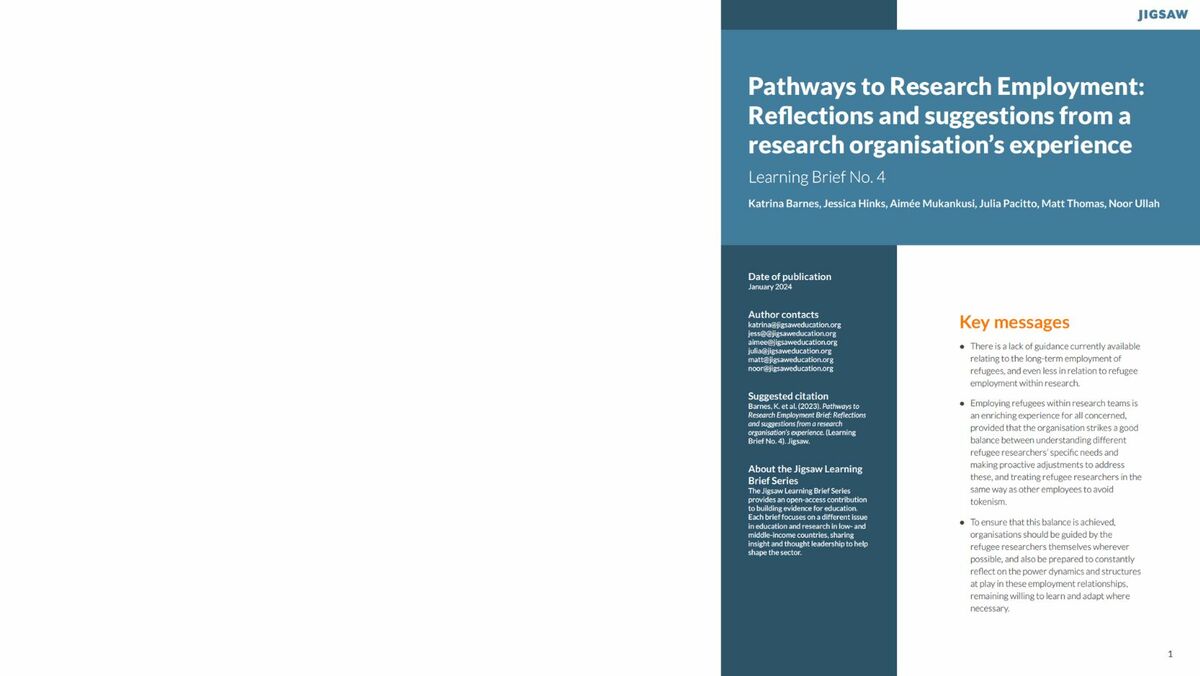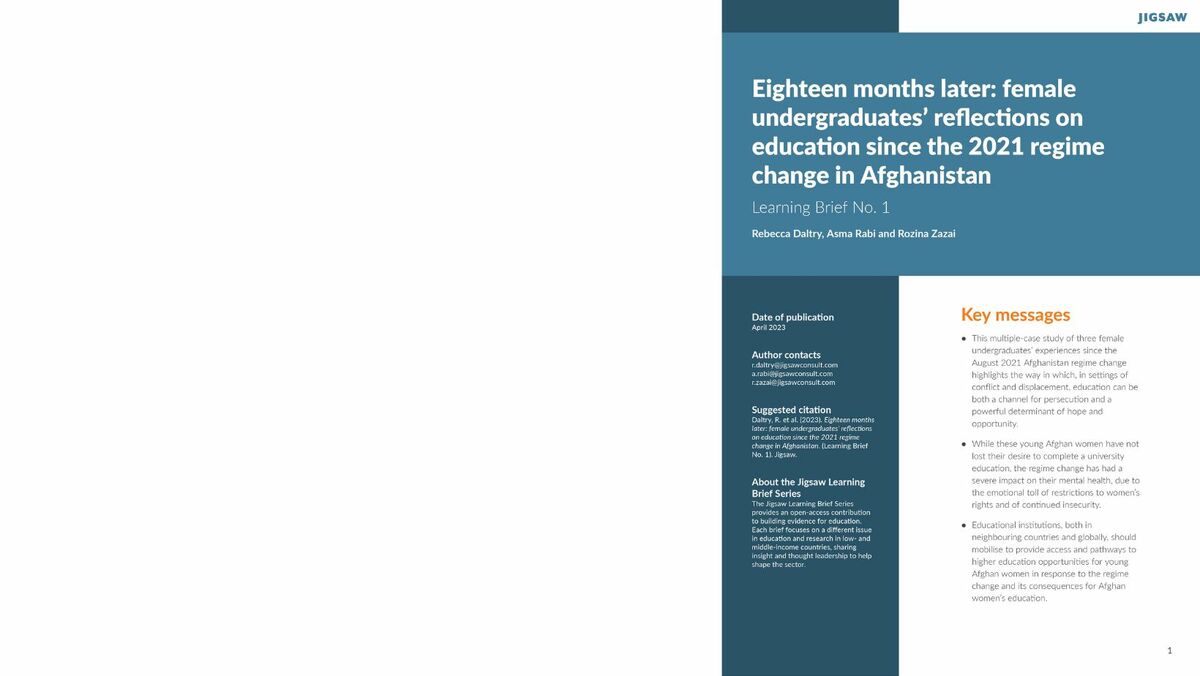
The Jigsaw Learning Brief Series provides an open-access contribution to building evidence for education. Each brief within the series focuses on a different issue in education and research in low- and middle-income countries, sharing insight and thought leadership to help shape the sector.

Pathways to Research Employment: Reflections and suggestions from a research organisation’s experience
In this learning brief, the Jigsaw team reflects on the experience of employing refugee research assistants within the organisation, drawing on the perspectives of both the research assistants themselves and the wider team. Reflections on the successes and challenges of this process are used to provide nuanced guidance to other research organisations seeking to create successful employment opportunities for refugees.
Building evidence for ‘EdTech within Limits’: engaging with the environment in issues of sustainability in EdTech
This learning brief discusses the urgent need to build evidence on environmental sustainability in EdTech. It offers an examination of existing literature on the EdTech-environment nexus, followed by an exploration of some existing tools for environmental assessment, before proposing an outline for a research framework to build evidence and promote environmentally sustainable decision-making in the design and implementation of EdTech programmes in low- and middle- income countries.
Developing a language policy for research in LMICs
This learning brief discusses the importance of establishing a language policy for research organisations working in low- and middle-income countries. Drawing learnings from both Jigsaw’s own work and that of other organisations, it offers a toolkit for organisations looking to develop their own language policy.
Eighteen months later: female undergraduates’ reflections on education since the 2021 regime change in Afghanistan
This learning brief provides a chronological account of the changing educational landscape for women and girls in Afghanistan since the 1990s before presenting a multiple-case study of three female undergraduates’ educational experiences since the August 2021 Afghanistan regime change.





